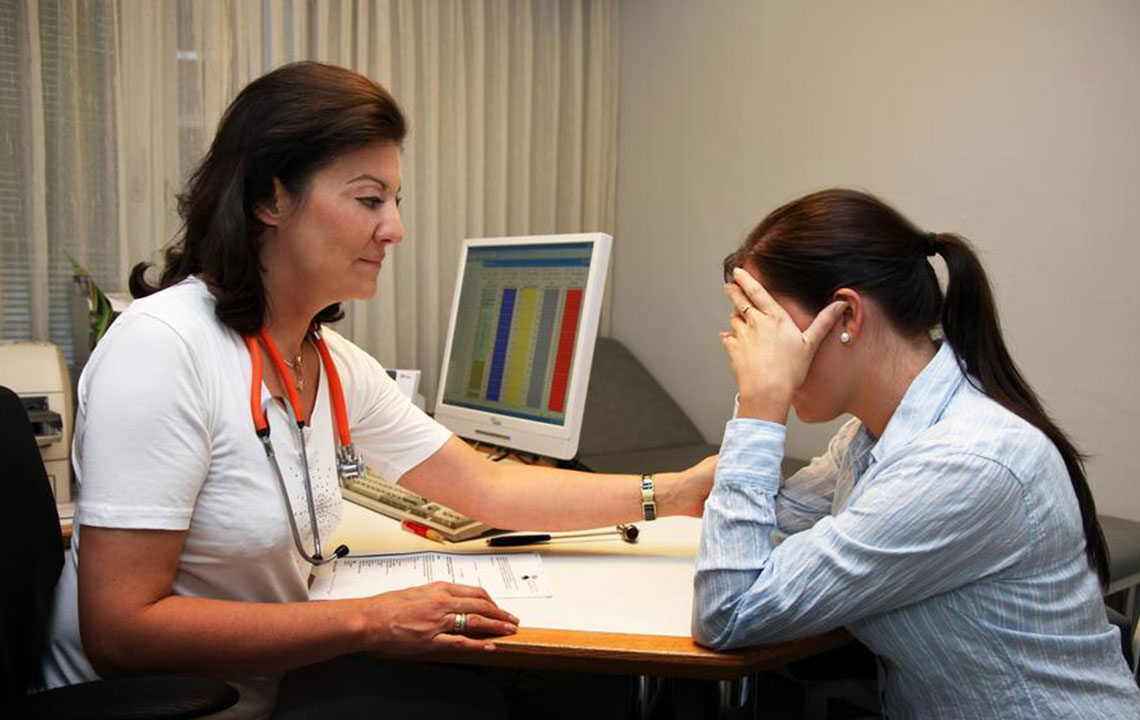Understanding Advanced Colorectal Cancer: Key Symptoms, Diagnostic Indicators, and Treatment Strategies
Learn about advanced colon cancer, including key symptoms, diagnosis, and treatment options. Early detection is crucial for effective management. Understand the stages and emerging therapies for better outcomes.

Understanding Advanced Colorectal Cancer: Key Symptoms, Diagnostic Indicators, and Treatment Strategies
Colorectal cancer, commonly referred to as colon cancer, develops in the large intestine or rectum. It stands as one of the leading types of cancer worldwide, affecting millions of individuals each year. The prognosis and treatment outcomes heavily depend on the stage at which the disease is diagnosed. Detecting colon cancer early significantly improves the chances of successful treatment and survival. Therefore, understanding the critical signs, diagnostic procedures, and available treatment options is vital for patients and healthcare professionals alike.
Colorectal cancer typically begins as small benign clumps of cells called polyps that can form within the inner lining of the colon or rectum. Over time, some of these polyps can become cancerous. Recognizing the early symptoms and undergoing routine screening can lead to timely intervention, often preventing the progression to advanced stages. As the disease advances, it can metastasize, spreading to other organs, which complicates treatment and reduces survival rates.
Key Symptoms Indicating Possible Colon Cancer
Patients often experience subtle and sometimes overlooked symptoms during the initial stages. Recognizing these signs early can lead to prompt diagnosis and increased treatment options. Common symptoms include:
Persistent Changes in Bowel Habits: This includes prolonged diarrhea, constipation, or alternating patterns that last for weeks, signaling possible irregularities in the colon's functioning.
Rectal Bleeding: Blood in the stool or rectal bleeding without any obvious cause should raise suspicion, especially if coupled with other symptoms.
Unexplained Anemia: Chronic blood loss can lead to iron deficiency anemia, resulting in fatigue, weakness, and pallor.
Sudden and Unintended Weight Loss: Rapid weight loss without changes in diet or activity level can be a warning sign of a malignant process.
Persistent Nausea and Vomiting: Especially in conjunction with other gastrointestinal symptoms, these can indicate tumor growth or obstruction.
Systemic Fatigue: General feelings of exhaustion that are not relieved by rest can be associated with advanced disease or systemic effects of cancer.
Diagnosis and Staging of Colorectal Cancer
Early detection is primarily achieved through screening methods such as colonoscopy, which allows direct visualization of the colon lining and removal of precancerous polyps. Blood tests including carcinoembryonic antigen (CEA) level measurement can aid in monitoring disease progression. Imaging techniques like CT scans, MRI, and PET scans help determine the extent of tumor spread, assisting in staging the cancer accurately.
The staging system for colon cancer ranges from Stage 0 (carcinoma in situ) to Stage IV (metastatic disease). Accurate staging is essential for selecting appropriate treatment strategies and estimating prognosis. Early-stage cancers are confined within the mucosal layers, while later stages involve the invasion of surrounding tissues, lymphatic involvement, and distant metastases.
Comprehensive Treatment Strategies for Different Stages
The treatment approach varies significantly based on the cancer stage:
Stages 0 and I: These early stages usually involve minimally invasive procedures such as polypectomy or local excision during colonoscopy. If necessary, minor surgeries are performed to remove affected tissues, providing excellent prognosis and often curative outcomes.
Stage II: Cancer penetrates through the bowel wall into surrounding tissues but hasn't spread to lymph nodes. Treatment typically involves partial removal of the affected colon segment (partial colectomy) combined with careful pathological assessment. Adjuvant chemotherapy may be recommended in some cases to reduce recurrence risk.
Stage III: When cancer reaches nearby lymph nodes, a combination of surgery and chemotherapy is usually advised. Surgical removal of the tumor along with affected lymph nodes is performed, followed by chemotherapy to target remaining cancer cells and prevent relapse.
Stage IV (Metastatic Disease): Tumors have spread beyond the colon to distant organs like the liver, lungs, or other tissues. Surgical options may be limited to palliative measures or metastasectomy when feasible. Systemic treatments such as chemotherapy, targeted therapy, and immunotherapy become the mainstay of management. Radiation therapy may also be employed to control symptoms or reduce tumor burden.
Emerging and Supportive Therapies
Advancements in cancer treatment include targeted therapies aimed at specific genetic mutations and immune checkpoint inhibitors to boost the body's immune response against cancer cells. Palliative care focuses on symptom management, improving the quality of life for patients with advanced disease. Multidisciplinary approaches involving surgeons, oncologists, radiologists, and palliative care specialists are essential for personalized treatment plans.
Preventive Measures and Screening Recommendations
To reduce the risk of developing colorectal cancer, lifestyle modifications are encouraged, including a diet rich in fruits, vegetables, and fiber, regular exercise, maintaining a healthy weight, and avoiding tobacco and excessive alcohol consumption. Routine screening starting at age 45 or earlier for high-risk individuals significantly enhances early detection. Methods include colonoscopy every 10 years, flexible sigmoidoscopy, or stool-based tests such as fecal occult blood testing (FOBT) and DNA tests.
In conclusion, colorectal cancer remains a major health challenge but is highly treatable and even curable if detected early. Recognizing warning signs, adhering to recommended screening schedules, and seeking prompt medical care are essential steps toward combating this disease effectively. Advances in diagnosis and treatment continue to improve patient outcomes, making awareness and early intervention key components in the fight against colorectal cancer.





